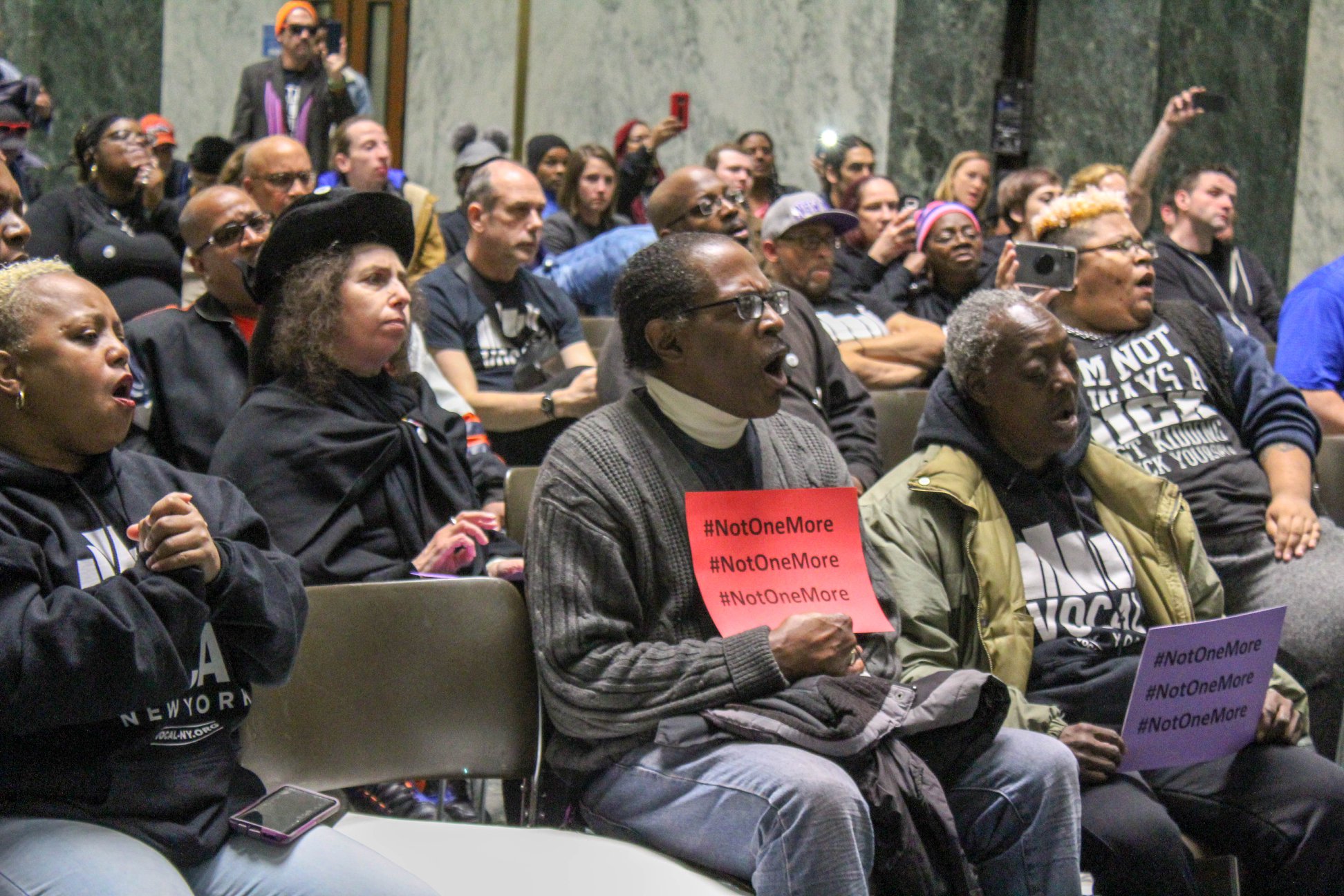A six-year effort to decriminalize syringe possession for drug use in New York is finally gaining ground. On June 7, the New York State Senate passed Bill 2523 to decriminalize possession and sale of hypodermic syringes. The bill still needs to pass the lower Assembly and be signed by Governor Cuomo before becoming law—but advocates are expecting it to do so.
Under current New York law, syringes exist in an uncomfortable gray area. State code criminalizes them as “drug paraphernalia,” and possession is considered a class-A misdemeanor—punishable by up to a year in jail and fines of up to $1,000. However, state-authorized syringe service programs (SSP) are legally allowed to distribute to syringes enrolled participants.
Bill 2523 would remove syringes from the paraphernalia classification, thus in theory protecting drug users from arrest for having syringes on their person. This would include not just unused syringes, but also those containing trace amounts of state-banned drugs.
“We are pretty confident that the Governor will not veto this bill,” Biz Berthy, a drug policy organizer at VOCAL-NY, told Filter. “If we do get to that point it will be pretty astounding, considering the fact he is singlehandedly responsible for the syringe shortage that happened last year, which led to the new HIV cluster and hepatitis C rates surging across the state.”
In October, Filter reported on a new cluster of HIV cases in New York’s Monroe County. The county recorded more new cases in one year than in any of the four preceding it. This happened while SSP were facing widespread shortages of syringes and other critical supplies for six months during the pandemic—a direct result of withheld funding payments by Governor Cuomo.
Bill 2523 stands to protect the health of all New Yorkers, especially those who inject drugs. Distributing sterile syringes to injection drug users is highly effective at reducing needle-sharing, which can spread blood-borne diseases like HIV or hepatitis C. In the decade following New York City’s authorization of SSP in the early 1990s, HIV prevalence among the city’s drug users dropped from 50 percent to 17 percent.
Similar data can be found linked to SSP around the country. Six years ago, an HIV outbreak driven by injection drug use in Scott County, Indiana, attracted national attention. The crisis forced a recalcitrant, then-Governor Mike Pence to authorize SSP within the state. Scott County’s HIV rate subsequently fell from 235 new infections in 2015 to just one case in 2020.
However, in keeping with another national trend, Scott County electeds just voted to shutter that same SSP; one commissioner called it a “welfare program for addicts.” SSP remain heavily stigmatized throughout the US, with recent legislative efforts threatening them in places like West Virginia and North Carolina.
Policing itself has been directly linked to increased prevalence of HIV.
Authorized SSP give their participants—and their workers—an ID card identifying the program and that the person can legally possess syringes. On paper, this protects card-holders from being harassed by police for carrying unused syringes, though in practice police often ignore the law at their leisure.
Police around the state have continued to arrest thousands of people every year for syringe possession. In a state of over 19 million residents, only 25 independent organizations are legally authorized to distribute syringes. The result is that many New Yorkers are unable to regularly access SSP, or may be too frightened to do so. Policing itself has been directly linked to increased prevalence of HIV.
The state does allow approved pharmacies and health care agencies to sell syringes through its Expanded Syringe Access Program (ESAP). Bill 2523 would expand ESAP by allowing the program to distribute as many syringes as a person needs, rather than operating under the current cap of 10. Evidence has shown that allowing drug users to pick up as many syringes as they need is the most effective way of preventing blood-borne disease transmission.
But a fundamental issue with ESAP is that many people who use syringes can’t afford to pay for them, whereas SSP distribute their syringes and all other supplies for free. SSP have operated in New York City in one form or another for decades, but drug users in more remote areas of the state face even higher rates of arrest for syringe possession than those in NYC. Bill 2523 would help protect rural New Yorkers from both blood-borne disease transmission as well as incarceration.
“A lot of times when people do get arrested, syringe possession isn’t the primary charge,” Berthy said, “but it’s used to get plea bargains.” In other words, prosecutors pressure people into pleading guilty to syringe possession to avoid more serious charges.
Ultimately, Bill 2523 will not prevent unlawful and racially motivated drug arrests. But if signed into law, it will at last close a long-standing legal loophole—and delegitimize one more tool of police harassment and abuse.
Photograph of VOCAL-NY activists demonstrating at the New York state capital in support of End Overdose and Medicaid Awareness courtesy of VOCAL-NY





Show Comments